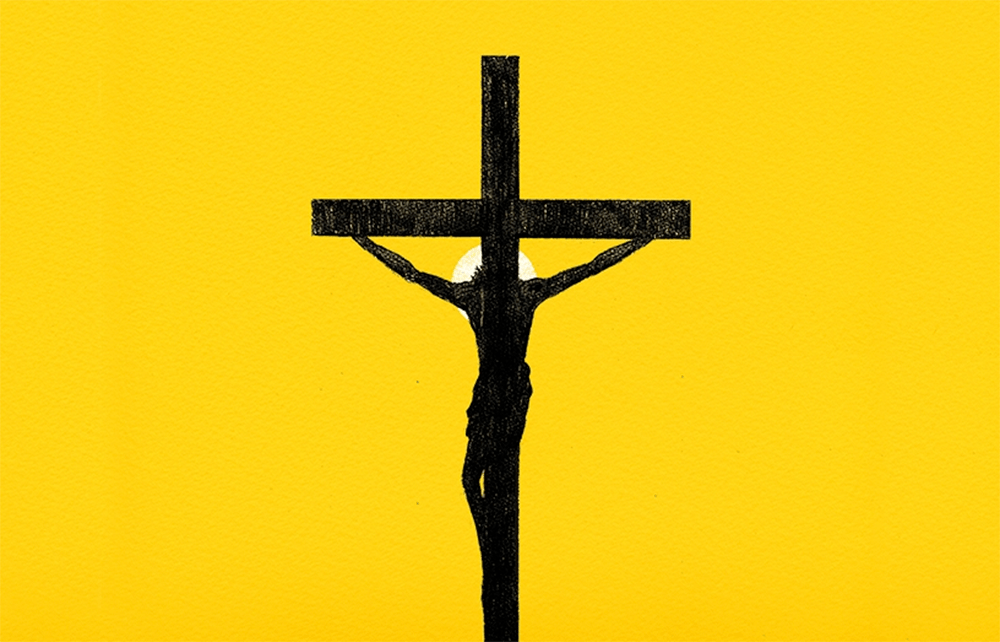
For what should we give thanks this Christmas? The faith that sustains millions through life’s challenges and inspires countless acts of compassion every day? The hope that our world may be redeemed by love? The charity that makes us think of the voiceless and the vulnerable who need our love and protection? Faith, hope and charity are virtues at the heart of Christian belief. They are not exclusive to Christianity, of course, but the place of religion in our national life has underpinned the moral reasoning which has upheld our civilisation.
The idea that atheists are privyto some higher level of neutrality doesn’t stand up to scrutiny
The principle of the equal worth of every individual is at the heart of Christian belief. As St Paul writes, for Christians, ‘there is neither Jew nor Greek, there is neither slave nor free, there is neither male nor female; for you are all one in Christ Jesus’. This doctrine of radical equality, revolutionary in its time, has inspired the evolution of democratic institutions worldwide, sustains the idea of the rule of law, enjoins us to care for the sick, frail and elderly, makes the protection of the young a solemn duty and is the enemy of racism, slavery, oppression and cruelty.
It might be thought that this is an inheritance for which we should all be thankful. But the idea that individuals in public life should be inspired by faith when they reason morally is under renewed attack. The debate on the assisted dying bill has seen secular liberals demonstrate an intensified intolerance for what they see as the unjustified intrusion of religion into the public square.
The assault is not directed at Christians alone. The first to come under attack was the Secretary of State for Justice, Shabana Mahmood, a Muslim. Her opposition to legislation facilitating suicide led to her Labour predecessor, Lord Falconer, saying: ‘I respect [her] religious belief but I do not think it should be imposed on everybody else.’
In other words, religion is fine as a private superstition, like astrology or tarot–reading, but invalid when it comes to wider moral reasoning. Lord Falconer’s anathematisation of faith was echoed by many commentators, perhaps most eloquently by the journalist Lewis Goodall, who even objected to religious MPs using non-religious reasons to argue against the bill. ‘I wonder,’ he wrote, ‘if the argument and the public might not be better served if, in matters of conscience such as this, MPs were not only clear with themselves and the voters that at least some of their opposition is doctrinal, and also remember that they are legislating not only for their own souls but everyone else’s.’ For Mr Goodall, faith would appear to be similar to a pecuniary interest. The validity, integrity and quality of the arguments of religious believers should therefore be treated with particular scepticism.
We all have political philosophies that are informed by our experiences and beliefs. The idea that atheists are privy to some higher level of neutrality doesn’t stand up to scrutiny. Those with no faith are no more immune to bias than anyone else.
Indeed the dismissive view of faith, popular among secular liberals, is a form of ethical vanity. It privileges one type of reasoning – rationalist, utilitarian, consequentialist, Benthamite – over other philosophical approaches. It ignores or dismisses a much older tradition – the natural law approach of Aristotle or Aquinas – which survives in the teachings of Abrahamic faiths. It is from the natural law tradition that the most durable arguments against all sorts of evils spring. Whether it is the case against eugenics or the prohibition of torture, the most powerful bulwark is an ethical attachment to natural rights. A belief that individuals have – a priori –dignity and worth that cannot be compromised has been a protection over generations.
Perhaps counterintuitively, the privileging of a particular religion guarantees the voice of all. This is why no major British religious minority has called for the dis-establishment of the Church of England or for the removal of the bishops from the House of Lords. The late Queen put this well in her Diamond Jubilee when she said: ‘Gently and assuredly, the Church of England has created an environment for other faith communities and indeed people of no faith to live freely. Woven into the fabric of this country, the Church has helped to build a better society – more and more in active co-operation for the common good with those of other faiths.’ This principle was reiterated at the Coronation Oath last year.
This is why it is important for the bishops to remain in the House of Lords: not because the individual office-holders might be especially gifted as legislators, but because their presence guarantees the right of religious voices to be heard. As the Muslim professor Tariq Modood put it, the Anglican establishment ‘may be far less intimidating to the minority faiths than a triumphal secularism’.
And far from Westminster, there are signs of a gentle Christian revival. For the third year running, church attendance in England is increasing. Across the West there appears to be a growth in Christian belief among Gen Z, especially young men. This suggests that there may be a richer harvest for a new archbishop who is willing to refocus on God and reinvest the Church’s resources in the place where the Church is still well loved – the local parish. The Anglican establishment at the local level is vital to the support of the communities they live and pray within. At the national level, it strengthens the place of religious minorities in our secular nation. That is something for which we should all give thanks this Christmas.








Comments